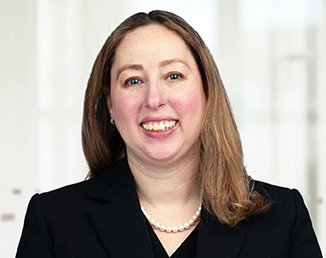Day Pitney Prepared to Assist Clients in Requesting Designation as "Essential" Business under New York's COVID-19 "Work from Home" Executive Order
On Friday, March 20, New York's Governor Andrew Cuomo issued Executive Order 202.8, effective March 22, directing that all businesses and not-for-profit entities in the State of New York, employ, to the maximum extent possible, any telecommuting or work from home procedures that they can safely utilize. Under the Executive Order, employers in the State of New York are required to reduce their in-person workforces at any workplace locations by 100 percent no later than March 22 at 8:00 p.m.
Previously, the State of New York's Empire State Development Corporation (ESDC) issued its "Guidance for Determining Whether a Business Enterprise is Subject to a Workforce Reduction." Businesses not designated as operating in categories initially identified as essential by the Executive Order or the ESDC guidance may be designated essential by ESDC after submitting to ESDC a Request for Designation as an Essential Business. Day Pitney attorneys are studying precedent and preparing to promptly submit client requests to ESDC for designation as an "essential" business or seek other relief for purposes of gaining a full or partial exemption from the in-person restrictions of Executive Order 202.8, as appropriate.
The ESDC guidance offers a non-exclusive list of types of business that will be deemed essential, as follows:
Essential healthcare operations including:
|
|
Essential infrastructure, including:
|
|
Essential manufacturing, including:
|
|
Essential retail, including:
|
|
Essential services, including:
child care services |
|
News Media
Financial institutions, including:
|
|
Providers of basic necessities to economically disadvantaged populations, including:
- homeless shelters and congregate care facilities
- food banks
- human services providers whose function includes the direct care of patients in state-licensed or funded voluntary programs; the care, protection, custody and oversight of individuals both in the community and in state-licensed residential facilities; those operating community shelters and other critical human services agencies providing direct care or support
Construction, including:
- skilled trades such as electricians, plumbers
- other related construction firms and professionals for essential infrastructure or for emergency repair and safety purposes
Defense, including:
- defense and national security-related operations supporting the U.S. Government or a contractor to the US government
Essential services necessary to maintain the safety, sanitation and essential operations of residences or other essential businesses, including:
|
|
Vendors that provide essential services or products, including logistics and technology support, child care and services, including:
- logistics
- technology support for online services
- child care programs and services
- government owned or leased buildings
- essential government services
Neighboring states are implementing similar measures.
On March 20, 2020, Connecticut Governor Ned Lamont issued a similarly worded Executive Order 7H, which becomes effective March 23 and is subject to further guidance to be issued by the Commissioner of Department of Economic and Community Development (DECD). More information on the Connecticut Executive Order can be found here: Day Pitney Prepares to Assist Clients in Requesting Designation as "Essential" Business under Connecticut's COVID-19 "Work from Home" Executive Order.
On March 21, 2020, New Jersey Governor Phil Murphy issued Executive Orders 107, and 108, which became effective at 9 p.m. on March 21, ordering businesses in New Jersey to make "best efforts" to reduce on-site staff and close to the public "non-essential" retail establishments due to COVID-19.
For more Day Pitney alerts and articles related to the impact of COVID-19, as well as information from other reliable sources, please visit our COVID-19 Resource Center.











